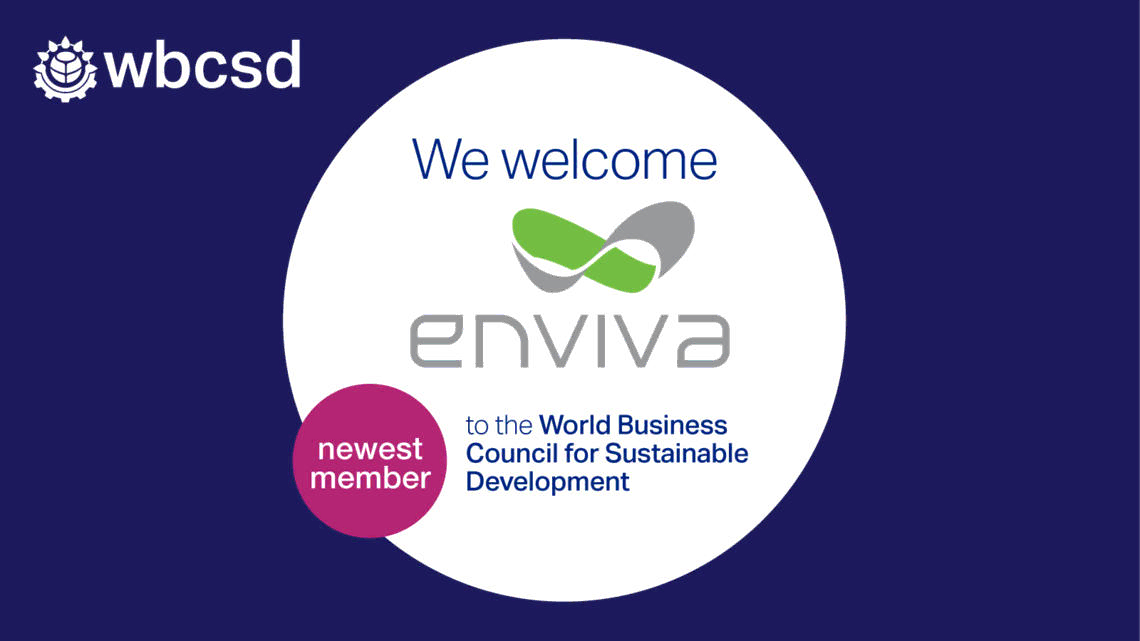Geneva, Switzerland, 10 March 2021 – Enviva, a leading global renewable energy company specializing in sustainable wood bioenergy, a renewable fuel source that provides global power and heat generators with a drop-in alternative to fossil fuels, joined nearly 200 forward-thinking companies as the newest member of the World Business Council for Sustainable Development (WBCSD).
For power generation, Enviva’s sustainable wood pellets provide reliable and dispatchable energy that complements the intermittency of wind and solar energy, ensuring a stable grid while helping global energy producers substantially reduce their carbon emissions by more than 85% on a lifecycle basis compared to coal. Enviva focuses on the three core values to guide its work – people, forests, and climate change, and how they drive its approach to sustainability in all aspects of the business. The company manufactures its wood pellets using responsible and transparent sourcing practices that keep southern U.S. forests thriving, healthy, and growing.
“Enviva is proud to join such a powerful network of leaders to advocate for the important role which forests play in the transition to a resilient circular economy,” said John Keppler, Enviva Chairman and Chief Executive Officer. “By joining WBCSD’s Forest Solutions Group, Enviva looks forward to collaborating with WBCSD’s cross-sector network of forward-thinking businesses who share its commitment to solving the climate crisis with real, tangible solutions.”
WBCSD President and CEO Peter Bakker said, “WBCSD is dedicated to working towards a transformation in sustainable systems. This will only be achieved in collaboration with global industry leaders such as Enviva and we look forward to working with them and benefit from their leadership and experience across our programs and projects.”
The Bethesda, MD-headquartered company is the world’s largest producer of industrial wood pellets. It employs about 1100 employees across nine wood pellet production plants, five deep-water export terminals in the U.S. Southeast and in offices in the U.S., Japan, Germany and the U.K.
WBCSD news articles and insights may be republished in accordance with the Creative Commons Attribution-NonCommercial-NoDerivatives 4.0 International Public License, and in accordance with our Privacy Policy. All Content must be featured with due credits.

